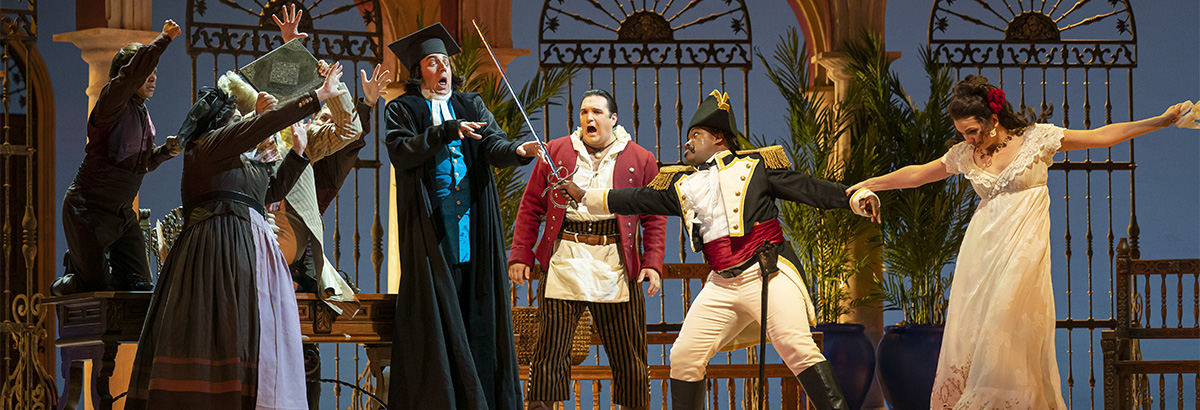March 31, 2020
10 of Opera's Silliest Moments
Yes, the music is sublime, the spectacle is incredible, and the characters find their ways into our hearts. But even the most avid opera lovers can admit that some of our favorite operas have plot holes you could drive a bus through. Here are ten examples of operas with stories so wild, you'd think they were an April Fool's joke.
Burn baby burn, gypsy inferno
In Il trovatore, Verdi reminds us to always check that you have the correct baby before you toss it in a fire. Otherwise, you will be forced to raise the child as your own before the opera's villain kills you and his own long-lost brother.
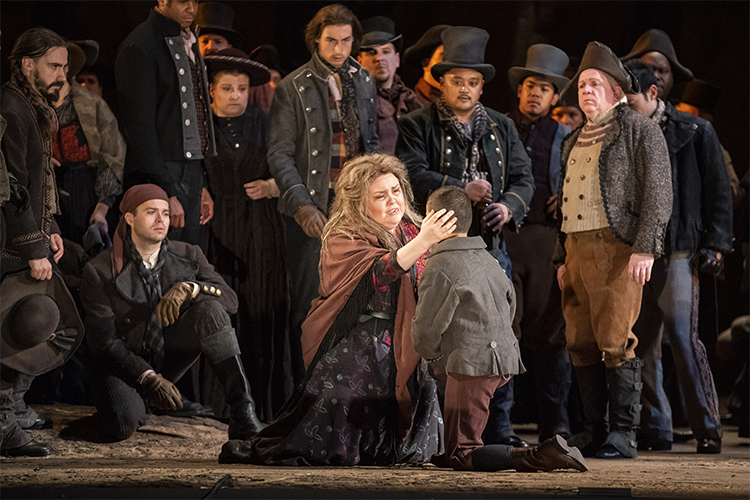
Jamie Barton as Azucena in Lyric's 2018 production of Il trovatore. (Photo: Todd Rosenberg)
I mustache you: who would honestly fall for this?
In Mozart's Così fan tutte, two young men assume new identities by donning fake mustaches (yep, that's it). They then proceed to trick each other's girlfriend into falling in love with them.
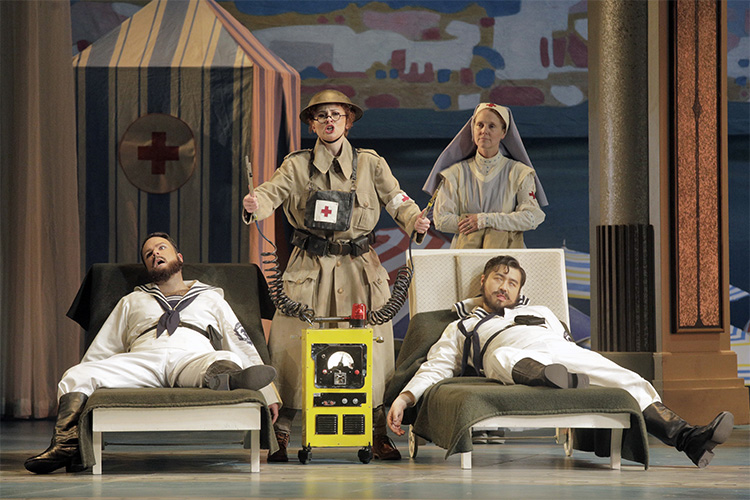
Andrew Stenson as Ferrando, Elena Tsallagova as the wily maid Despina, and Joshua Hopkins as Guglielmo in Lyric's 2018 production of Così fan tutte. (Photo by Cory Weaver)
Looking to avoid confrontation? Just find some magic bells.
In Mozart's The Magic Flute, during their escape from Sarastro's temple, the hapless bird-catcher Papageno and the opera's heroine Pamina are set upon by the evil Monostatos. When Papageno plays his magic bells, the villain and his minions fall under a spell, dancing and singing their way offstage.
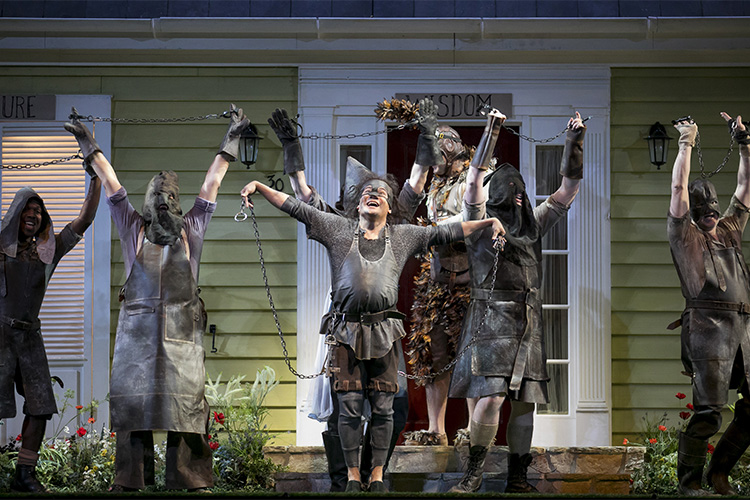
Ryan Opera Center alumnus Rodell Rosel as Monostatos in Lyric's 2016/17 production of The Magic Flute. (Photo: Todd Rosenberg)
Your jacket, your problem
In Mozart's Don Giovanni, the Don and his servant Leporello switch clothes, leaving Leporello to deal with Elvira (and be hunted down by a group of spurned lovers and angry boyfriends) while the Don escapes into the night with a new lady love all thanks to a new outfit.
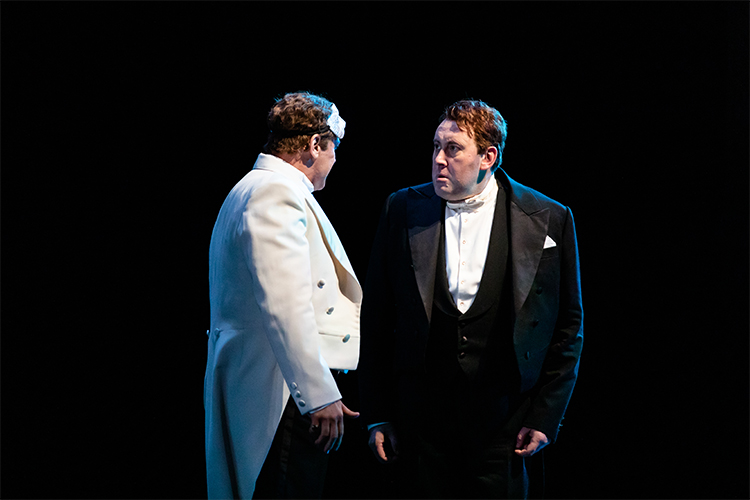
Lucas Meachem in the title role and Matthew Rose as Leporello in Lyric's 2019 production of Don Giovanni. (Photo: Kyle Flubacker)
What do you do with a drunken sailor?
Toward the end of Act One of Rossini's The Barber of Seville, Count Almaviva wants to see his beloved Rosina, but her guardian Dr. Bartolo keeps her under lock and key. So Figaro, the resourceful barber, gets Almaviva into Bartolo's house disguised as a soldier who's more than a little intoxicated. Almaviva proceeds to drive Bartolo up the wall with his antics, but he does manage to see Rosina (who, of course, is completely astonished) and pave the way for more fun in Act Two!
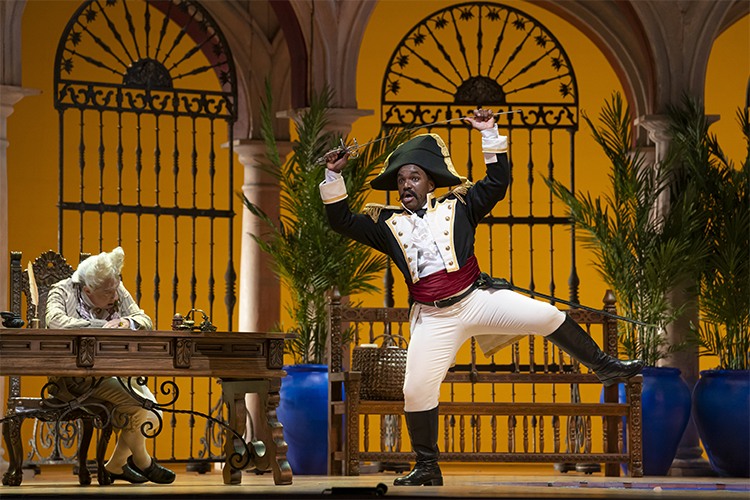
Lawrence Brownlee as Count Almaviva in Lyric's 2019 production of The Barber of Seville. (Photo: Todd Rosenberg)
And you think Tinder is tough
Puccini's Turandot features a princess who gets to ask all of her suitors three riddles, and if they get them wrong, she beheads them. And a lot of them have gotten the answers wrong. This opera makes reality TV's "The Bachelorette" look like a pretty tame alternative.
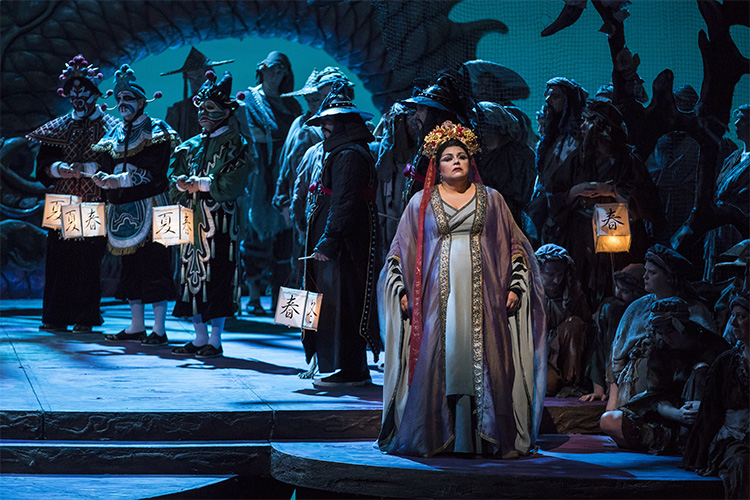
Ryan Opera Center alumna Amber Wager in the title role of Lyric's 2018 production of Turandot. (Photo: Todd Rosenberg)
Fruit can be full of surprises
In Prokofiev's The Love for Three Oranges, a prince is cursed with an obsession for three very specific oranges. He and his court jester travel into the desert in search of the fruit. While the Prince is asleep, the Jester peels the first two oranges but instead of finding juice, he finds real-life princesses who immediately die of thirst. They are able to find water for the third princess--Ninetta--who lives and falls in love with the Prince.
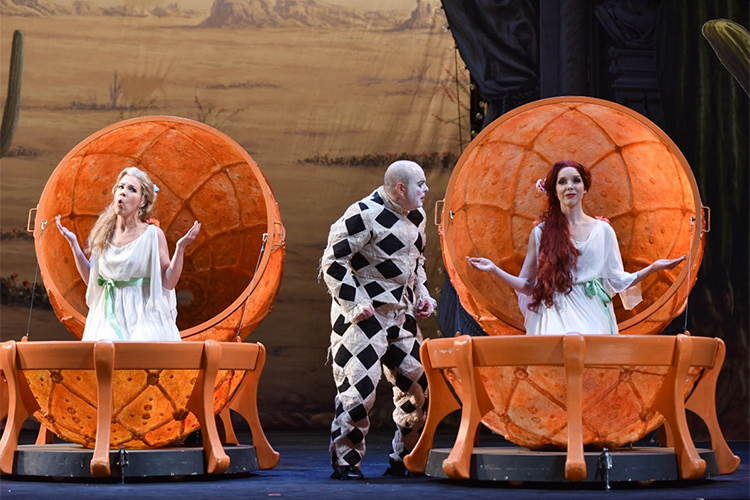
This fun production of The Love for Three Oranges was seen at Opera Philadelphia's Festival O19 in September 2019. (Photo: Kelly & Massa)
Here’s a Russian composer who nose what’s funny
In Shostakovich's The Nose, a barber accidentally cuts off a customer's nose and, panicked, disposes of it in a river, leading the nose-less man to search far and wide for his missing proboscis. He finds his nose praying in a church. It has grown to the size of a person. The abnormally large nose proceeds to lead its owner and the police on a merry chase before being beaten back to normal size.
The giant tap-dancing noses scene from Shostakovich's The Nose (The Royal Opera)
Love Potion No. Wine
In Donizetti's The Elixir of Love the naive Nemorino spends all of his money on a magic love potion (which is actually just wine). Believing it takes 24 hours to take effect, he drunkenly ignores the object of his affection, leading Adina to accept another man's proposal. With no money to buy more of the quack doctor's potion, Nemorino signs up for the army, finally forcing Adina to call off her wedding and admit she loves him. Nemorino then inherits a fortune from an uncle no one knew existed, and the two live happily ever after.
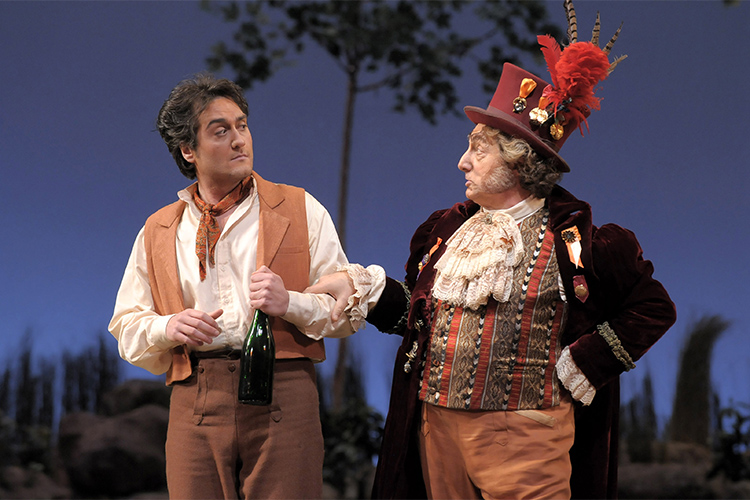
Giuseppe Filianoti as Nemorino and Alessandro Corbelli as Dulcamara in Lyric's 2009 production of The Elixir of Love. (Photo: Dan Rest)
Live loud, die long
One recurring silly trope in opera is the 20+ minute death scene. After a character takes a poison, finally expires from consumption, or suffers a gunshot wound, they will sing about it. Loudly. For a long time. Sometimes to a gaggle of onlookers who—rather than seek medical attention or otherwise assist—wait quietly for the aria to end. Some of the biggest culprits? The title character in Massenet's Werther, Mimì in Puccini's La Bohème, and Luisa and Rodrigo in Verdi's Luisa Miller.
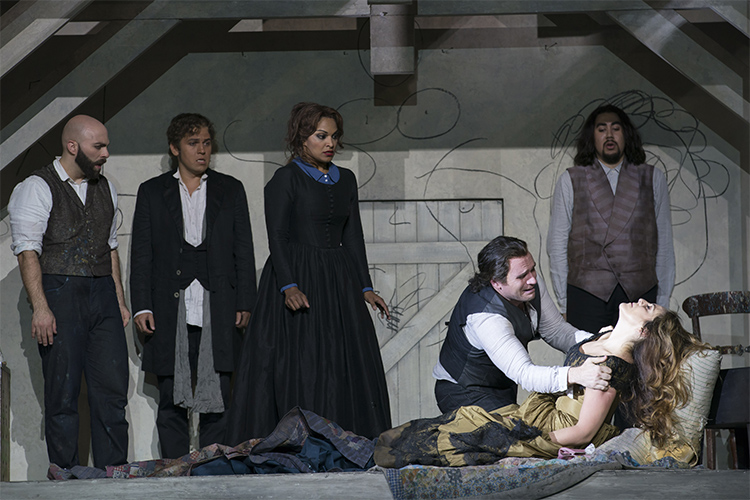
Maria Agresta as Mimì, surrounded by friends in Lyric's 2018/19 production of La bohème. (Photo: Todd Rosenberg)
